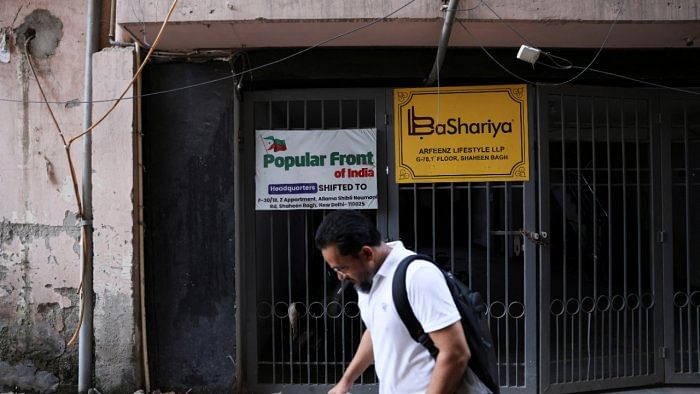
The national secretariat of the Social Democratic Party of India adopted a resolution on October 4 last, criticising the ruling Bharatiya Janata Party (BJP) for “weakening” the federal system with its “authoritarian policies”. The party went on to express concern over “widespread communal and caste discrimination” and called upon people “to unite and defeat the anti-democratic rule and save the country from the clutches of anti-constitutional forces”.
What was conspicuously missing in the SDPI’s resolution was any word about the Popular Front of India, which is believed to be its mentor organisation and which was banned by the Union Government just about a week back.
As hundreds of the PFI activists were arrested from across the country on September 22 and 27 before it was finally declared outlawed on September 28, the SDPI national president M K Faizy did react, stating that an “undeclared emergency” was clearly visible across the country. But the party didn’t go beyond that and rather sought to tread cautiously, distancing itself from the PFI, obviously to avoid any legal action by the government.
“As a political party, we are opposed to banning any organisation. But we do not have an obligation to defend the PFI,” Abdul Majeed Faizy, the national general secretary of the SDPI, told DH.
Also read: Ban on PFI: What’s next?
The SDPI came into existence in June 2009 and registered as a political party with the Election Commission of India (ECI) in April 2010. The party, according to its leaders, now has about 800 elected public representatives in local bodies, across the country, including the ones, whom it did not field, but supported.
The SDPI is believed to have mobilised its supporters to vote for the IUML candidate at Manjeshwar in Kasargod during the 2021 Assembly elections in Kerala. It also worked for the victory of the CPM candidates in a couple of constituencies in Thiruvananthapuram, where the BJP had high hopes.
The party has about 300 elected representatives in local bodies in Karnataka, where it now wants to win at least five constituencies during the Assembly elections next year. The nationwide crackdown on the PFI and the investigation by the Enforcement Directorate and the Income Tax Department on its finances have undoubtedly cast a shadow on the SDPI’s plan for expanding its footprints.
The party’s leaders put up a brave front though. The SDPI receives voluntary contributions from its 3.5 lakh members and 1.75 lakh cadres and has been maintaining a very transparent accounting system, said the party’s national general secretary, ruling out the possibility that many of its workers or supporters could desert it in the aftermath of the ban on the PFI. “Our party represents all marginalised people, not any particular community. It will continue to take up issues affecting people,” said Abdul Majeed Faizy. “Was the BJP also banned when the RSS was banned?” he countered, when asked if he had any apprehension that the party, just like its mentor organisation, could also be outlawed.